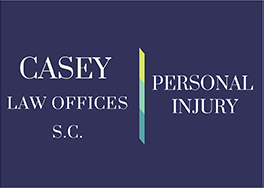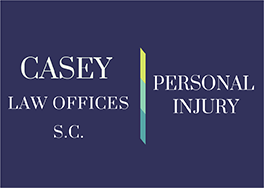
Paraquat Claims
Be Aware of the Dangers of Paraquat and Get the Help You Deserve if You Are Exposed
Paraquat is a weed-killing herbicide that is restricted to commercial use due to the fact that it is highly toxic. According to the U.S. Environmental Protection Agency (EPA), Paraquat is one of the most widely used herbicides in the nation. As a result, the EPA has classified it as a “restricted-use pesticide,” which means it is not allowed to be used residentially.
Paraquat has been banned in 32 countries worldwide, including the European Union and China, but it has not been banned in the U.S. yet. The people most often surrounded by Paraquat are commercial farmers, farmworkers, landscapers, and other agriculture workers. This product has been used to control invasive weeds and grass since 1964 for crops like corn, soy, and cotton.
According to the United Parkinson’s Advocacy Council, evidence suggests that chronic exposure to Paraquat can increase the risk of developing Parkinson’s disease by 200-600%. Paraquat is also associated with atypical Parkinson’s, multiple system atrophy, and progressive supranuclear palsy.
Even though the dangers of Paraquat are well-established, Paraquat is still one of the most commonly used herbicides in the world. The first symptoms of Parkinson’s disease include tremors, small handwriting, loss of smell, difficulty sleeping, difficulty moving or walking, constipation, a soft or low voice, dizziness or fainting, and stooping or hunching over. Although there are no specific tests that diagnose Parkinson’s disease based on medical history, a doctor can review signs and symptoms and conduct a neurological and physical examination.
When Should You File a Claim for Paraquat Exposure?
Paraquat poisoning can occur when an individual inhales or ingests Paraquat, comes into contact with sprayed plants, gets Paraquat on their skin, or works directly with the substance at all. Immediate side effects of Paraquat exposure include breathing difficulties, coma, confusion, dehydration, elevated heart rate, gastrointestinal distress, muscle fatigue or weakness, pain and swelling of the mouth and throat, and seizures.
There are several safeguards that Paraquat purchased in the U.S. contains to help prevent individuals from consuming it by accident. This includes blue dye that sets it apart from beverages, a chemical agent that induces vomiting if drunk, and a strong odor. However, these safeguards will not help individuals who are exposed to Paraquat on the job or who live near a sprayed area.
Suppose you were exposed to Paraquat while on the job and were later diagnosed with Parkinson’s disease or another health issue associated with Paraquat. In that case, you might be able to file a legal claim and get access to rightful compensation in the form of lawsuit settlements. This compensation can help you and your family cover the costs of medical treatments, lost wages, and beyond. Filing this form of claim will also hold the companies that exposed you to the chemical accountable and spread awareness of the dangers of Paraquat.
How Will We Prove You Were Exposed to Paraquat?
There are cases when your exposure to Paraquat is linked to an individual or company’s negligence. These cases will be easier to prove. For example, if you worked on an industrial farm, you might be familiar with the pesticides you were exposed to, but if you only lived near a farm, you might not know what chemicals you were exposed to. In that case, it would require research on the part of your lawyer’s team to discover who was responsible and what policies they were violating.
In October of 2020, the EPA released its interim decision reapproving Paraquat for use with new proposed safety measures to reduce the risk to humans and the environment. To hold the responsible party accountable for negligence, we must prove that they exposed you to the chemical. It will also help if we can prove that they violated one of the following regulations as laid out by the EPA:
- Banning aerial application except for cotton desiccation
- Banning pressurized handguns and backpack sprayer application methods
- Adding label language for mandatory spray drift management
- Putting a limit on the maximum application rate for alfalfa
- Requiring a 48-hour restricted entry time for all uses and crops except cotton desiccation
- Requiring a drift buffer for residential areas and a seven-day restricted entry interval for cotton desiccation
- Requiring PF10 respirators or closed cabs if the area treated during a 24-hour period is 80 acres or less
If you were exposed to Paraquat or believe you were exposed, you might be entitled to compensation. It is important to hold negligent companies responsible. The Casey Law Offices, S.C. team, will help present your case in the most favorable light possible to get the compensation you deserve.
To learn more about Paraquat exposure and what you can do if you are a victim, call Casey Law Offices at (414) 272-5564 or contact us online.










